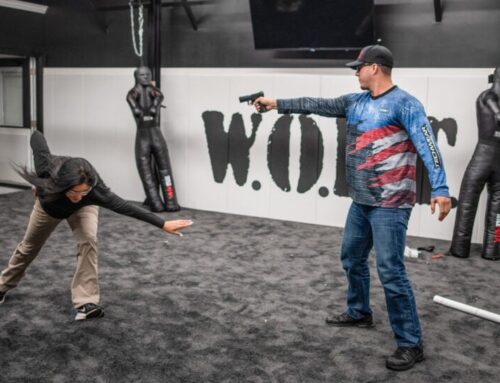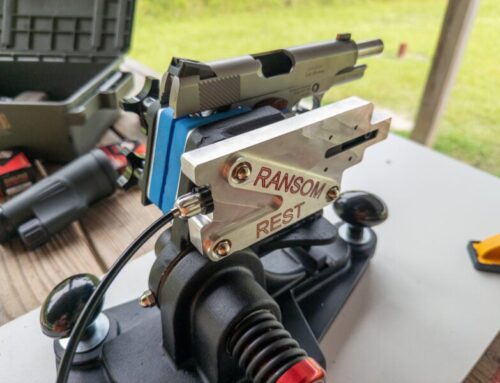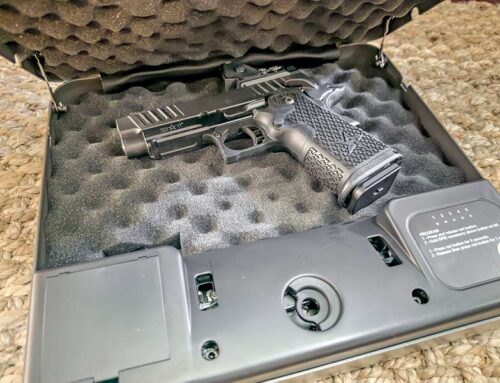This article originally appeared at OutdoorHub.

A couple of months ago, the rear window on my Cadillac Deville stopped working. No big deal, I got industrious and swapped out the regulator and motor. Unfortunately, there was still no joy – just a weird clicking noise when I activated the switch. At this point, not being a car mechanic, and therefore never having run into this problem before, some education was in order.
Back in the day, I would have had to go find someone who had run across all sorts of power window glitches before and get some instruction for them. Or perhaps I might have bought a comprehensive book about Cadillac Deville electrical systems. However, the world has changed, and now we’re able to learn new information and skills virtually, and more importantly, immediately.
A quick search of the internet pointed me to some videos and written articles with photos posted by people who had repaired hundreds of power window problems demonstrating a wide array of symptoms. Within 15 minutes of so, I figured out that a wire was crimped in the rubber grommet that guided power and control cables through the door hinge area. In case you’re wondering, it’s kind of a common problem with 2004-era Caddys. What happened in this situation is that I was able to get instructional information delivered immediately, at my convenience. Then, also at my convenience, I supplemented that written and video instruction with hands-on experience. Once I learned the fix via online instruction, I put that knowledge to work in a physical sense and repaired the problem in about 15 minutes.
Why do I mention car repair in a story about National Rifle Association educational programs? Strangely enough, my Caddy power window experienced illustrates the new way in which we can learn new skills. With modern technology, instruction information can be delivered to us when and where we want it. If said instruction requires “hands on” experience or live supplemental teaching, that’s no problem either. As with the Caddy window experience, there’ no reason I can’t learn something online and combine that with hands on execution later. It’s an example of combining the theoretical with the practical, thereby getting the best of both worlds.
That’s exactly what the National Rifle Association is aiming to do with its new blended learning programs. “America has more first-time gun owners than ever and the NRA remains dedicated to being the number one provider of firearm training,” said Executive Director of NRA General Operations, Kyle Weaver. “Thanks to our online courses and network of more than 125,000 NRA Certified Instructors, it has never been easier to learn basic firearm skills.”
Take for example the brand new NRA Basic Pistol Shooting blended learning course. Over the past five years, more than 1.2 million people have taken an NRA beginning pistol class. Last year alone, 200,000 students completed the course. Simply put, the demand for education is skyrocketing.
Previously, NRA pistol classes were only offered as classroom events with the NRA First Steps Pistol Orientation requiring a three-hour class and NRA Basic Pistol Shooting requiring eight full hours in the classroom. The idea of the new blended format is to maximize the value of live instructor and range time by covering appropriate topics via online training before the student arrives at the range for the instructor portion. Students register online, pay the online portion enrollment fee, and get started right away. Upon successful completion of the online curriculum, the student will be directed to register for the range session in their local area.
For example, with the new blended NRA Basic Pistol Shooting class, the online modules will cover topics like Gun Safety Rules, Types of Pistols, Operation of Revolvers and Semi-Automatic Pistols, Ammunition Knowledge and Selection, Selecting and Storing a Pistol and more. Once the background information is completed at the student’s own pace, the instructor can review this material as needed and offer additional hands-on training for topics like Fundamentals of Pistol Shooting, Clearing Stoppages, Zeroing, Pistol Shooting Errors and Pistol Inspection and Maintenance. While all topics are addressed in the online material, many benefit from live supplemental instruction too.
While big changes like this may involve some growing pains, there are plenty of benefits associated with performing some of the initial training online.
Students can learn at their own pace.
In a classroom, teaching generally has to be performed at the level of the slowest student. It’s difficult to lead a single class where some students may have significantly more pre-existing knowledge than others. Online, students can absorb material at their own pace and re-review as necessary. Yes, much of the audio and video material moves at a fixed pace, but part of the reason for that is to support state regulations where “training hours” are strictly regulated for support of concealed carry license documentation.
Students can learn at times convenient to them.
While a live class can only be offered on certain days and times, online classes are not only offered 24×7, but they’re also friendly for learning in discrete segments and short blocks of time. Want to complete a module or two after work? No problem.
Maximize the value of range time.
Over the years, student feedback has consistently demanded more time on the range rather than in a classroom chair. By covering as much “classroom” information as possible before live instruction, students and instructors both can benefit from optimization of their time together at a shooting facility when instructor to student interaction is most important.
Course information is standardized and consistent.
There are 125,000 NRA Certified Instructors in the country at any given time. There are also 125,000 slightly different ways that even structured and organized content is delivered to students. There’s a great standardization benefit to be realized from every student receiving the exact same basic instruction.
Higher quality course materials.
Classroom capabilities vary widely. Some are video ready while others have to rely on chalkboards and flip charts
. With internet content delivery, every student can benefit from audio, graphical, and video content presentation. We all have different learning styles, and online formats can address those different styles concurrently.
Course information can be higher quality.
It’s cost effective to develop high-quality multimedia training material when it will be used for thousands and thousands of students. As the content is delivered from a single location, updates to courseware are relatively straightforward and cost effective.
The new format of the NRA Basic Pistol Shooting class is being phased in as we speak. In fact, the traditional classroom versions of NRA First Steps Pistol Orientation and NRA Basic Pistol Shooting Course will no longer be offered after May 15, 2016.
These are the days of instant information gratification. The problem is that it’s up to us, the “students” to discern what elements of this plethora of educational material on the internet are valid. That’s where established organizations like the NRA come in. With professionally developed and vetted course content, students can be assured of receiving quality training information.
You can get more information on NRA Online Training at NRA Explore.







What this means is that NRA just priced itself out of the CCW training market. Non-NRA instructors can offer same training for about 50% of new cost with NRA direct training charge. Shows usual NRA lack of appreciation for reality.